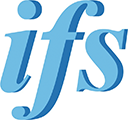
![[Translate to English:] [Translate to English:]](/fileadmin/_processed_/2/4/csm_Header_Querschliff_66fd2e1469.jpg)
When welding steels, process-related large temperature differences between weld metal and base material cause stresses which can lead to plastic alternating deformation, especially in the heat-affected zone. This process has a direct influence on the formation of residual welding stresses, as these are often limited by the changed yield or yield strength of the material. The non-optimal modelling of these hardening processes in the weld structure simulation is therefore held responsible, among other things, for discrepancies between calculated and experimentally determined residual welding stresses.
In the first research project on this topic, the mechanical hardening behavior of welded high-alloy, non-converting steels has been investigated. Based on the previous findings, the investigations are to be extended within the framework of a continuation project to the group of transforming steels, in whose welding processing the phase transformations additionally influence the hardening state. Thus, the formation of higher-strength phases leads to the fact that the effects of the associated structural hardening overlap with those of the mechanical ones. In addition, the phenomenon of transformation plasticity occurs, which causes additional mechanical hardening effects. Finally, there is the question of the transferability of the mechanical hardening state during phase transition.
Therefore, the aim of the continuation project is the elimination of a knowledge gap, which so far always leads to large discrepancies compared to experimental results when calculating residual weld stresses of transforming steels. Using the example of two structural steels with different strengths, an in-depth experimental material characterization is carried out. Based on this, calculations are performed with different material models, the results of which have to be compared with experimentally determined residual stresses and hardening states in welding tests. Thus a statement can be made on how the mechanical hardening is to be modelled in the welding structure simulation with converting steels in order to be able to calculate realistic results.